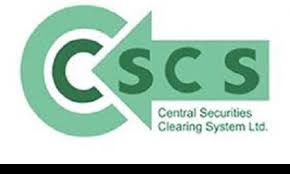The Central Securities Clearing System Plc (CSCS) has announced plans to host a major webinar as part of industry-wide sensitisation on Nigeria’s transition to the T+2 Settlement cycle for equities trading.
In a statement on Wednesday, the firm said the webinar will be held under the theme “Advancing Market Efficiency through T+2 Settlement”, and will bring together regulators, operators, and stakeholders in the capital market to prepare for the new settlement framework.
A settlement cycle refers to the period between when a trade is executed and when the buyer receives the securities while the seller gets paid. This process is commonly described as T+X, with “T” representing the trade date and “X” standing for the number of business days before settlement is completed.
Nigeria currently operates on a T+3 settlement cycle, meaning it takes three business days for trades to be finalised. However, the Securities and Exchange Commission (SEC) has approved a transition to T+2, effective November 28, 2025. This reform is designed to bring Nigeria’s capital market in line with international standards, improve liquidity, reduce counterparty risks, and strengthen investor confidence.
The upcoming webinar will feature top speakers including the Director-General of the SEC, Dr. Emomotimi Agama; Managing Director/Chief Executive Officer of CSCS Plc, Mr. Haruna Jalo-Waziri; Chief Executive Officer of Nigerian Exchange Limited, Mr. Jude Chiemeka; Managing Director of NASD Plc, Mr. Eguarekhide Longe; Managing Director of Lagos Commodities and Futures Exchange, Mr. Akinsola Akeredolu-Ale; and Chairman of the Settlement Cycle Review Committee, Ms. Onome Komolafe.
Speaking on the development, CSCS boss Haruna Jalo-Waziri described the move as a significant milestone for the Nigerian market. “The transition to T+2 is a major achievement for the Nigerian capital market and a testament to the collaborative spirit of our ecosystem. This shift not only brings our market in line with global best practices but also deepens efficiency, resilience, and investor trust. CSCS is proud to coordinate this journey with the support of regulators, exchanges, and market stakeholders,” he said.
The Settlement Cycle Review Committee, which is coordinated by CSCS and includes representatives of major industry operators, has been driving the transition process. The committee conducted a detailed multi-phase assessment of the Nigerian market to identify risks and solutions, before submitting a comprehensive report to SEC for regulatory approval.
Industry experts say the new settlement cycle will make Nigeria’s market more attractive to both local and foreign investors, especially portfolio managers who are often guided by settlement risks when deciding to allocate funds across markets. It will also help reduce systemic risks by ensuring quicker completion of trades and lowering the exposure of buyers and sellers.
The webinar is expected to serve as a key platform for clarifying issues and guiding all stakeholders through the implementation framework. According to organisers, the discussions will cover regulatory requirements, technology readiness, market infrastructure, and the role of brokers, custodians, and settlement banks in ensuring smooth operations from the go-live date.
Stakeholders are expected to use the opportunity to raise concerns and receive guidance on how to adapt to the changes, especially smaller operators who may face challenges in adjusting to faster settlement obligations.
The SEC had earlier stated that the transition will require strict compliance with regulatory guidelines, and warned operators to be fully prepared before November 28, 2025. Market watchers believe the smooth adoption of T+2 could also pave the way for future reforms such as real-time settlement or T+1, which are already being explored in more advanced markets like the United States and parts of Europe.
For investors, the T+2 settlement cycle is expected to shorten the waiting period between trading and accessing funds or securities. This could encourage higher trading volumes, reduce idle time for capital, and boost confidence in the Nigerian Exchange as a modern and competitive marketplace.
With the date for the transition drawing closer, CSCS said it would continue to work closely with regulators and operators to ensure no stakeholder is left behind. The institution also encouraged investors and industry players to participate actively in the webinar to fully understand the benefits and responsibilities of the new settlement framework.
The November 28 rollout is seen as a defining moment for Nigeria’s capital market, as it moves closer to global alignment while demonstrating resilience and innovation in the face of evolving financial systems.
